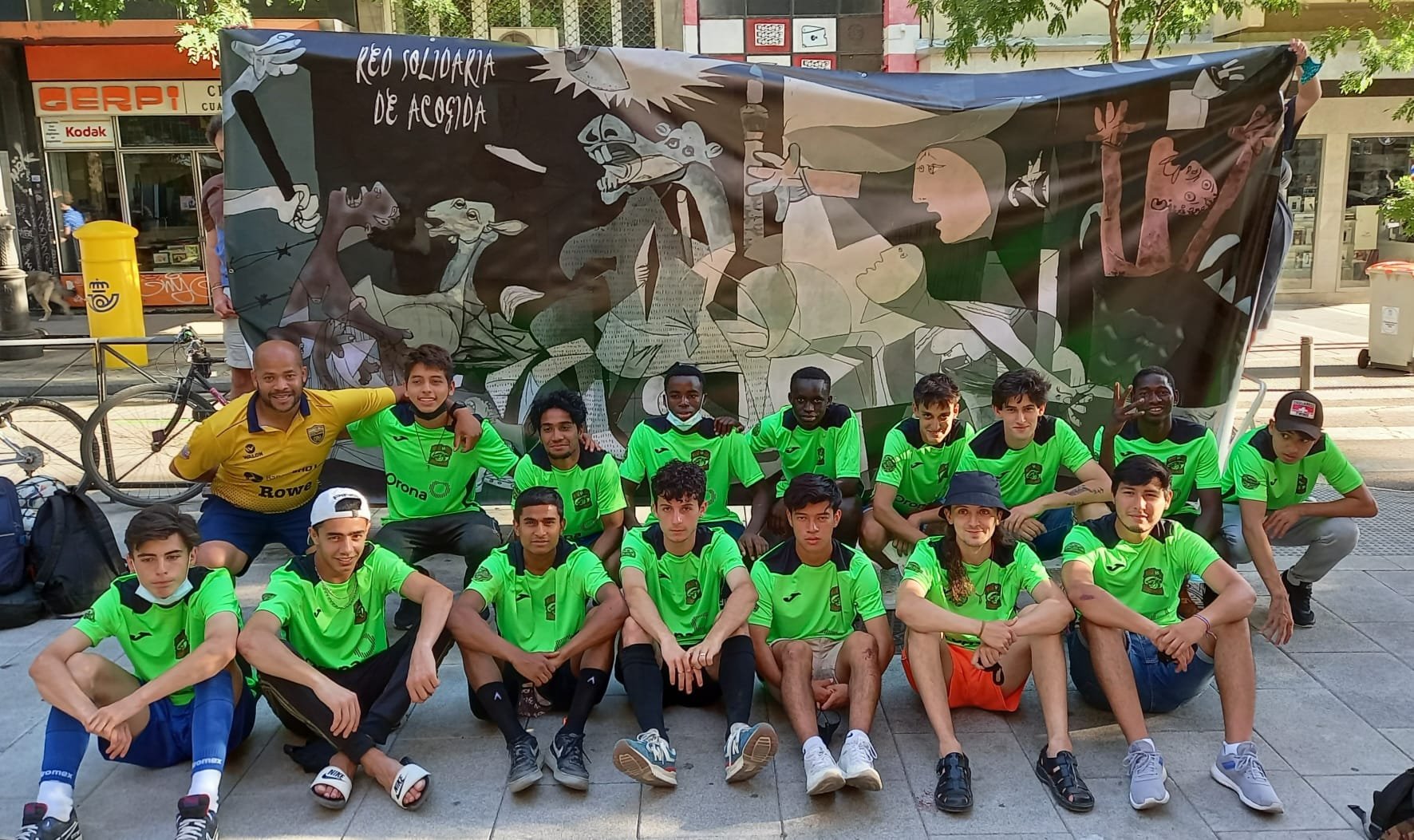
SPain
Dragones de Lavapiés
Dragones de Lavapiés is a community-based football club created in 2014. Our mission is to weave bonds of solidarity, respect and community, fostering dialogue and celebrating diversity through sport and competition.
We have football training twice a week and participate in weekend male, female, and youth leagues in central Madrid.
We work closely with European organisations and NGOs to create different programmes which help support different social challenges. We use these courses to help early school leavers and people caught up in violence. We also use football to empower women and give them access to culture.
Our community leaders also run Arabic, English and Spanish language classes for participants.
Country statistics
27 out of 189 in Human Development Index Rankings (UNDP, 2021)
$29,740 average annual salary per person (World Bank, 2021)
1978 Spanish Constitution includes the right to housing
Spain is a country in Southwestern Europe with territory in Northern Africa. 47.1 million people live in the country. In 2022 81.3% of people were living in urban areas, with dense settlements around Barcelona and capital city Madrid (CIA World Factbook).
The Spanish Constitution (1978) includes the right to housing - one of the guiding principles of social and economic policy is the right of Spanish citizens to decent and adequate housing.
Spain signed a United Nations Optional Protocol (OP-ICESCR) in 2013. Since signing, Spain have been found in violation for not taking adequate steps to support families to access housing. A lack of social housing, mortgage repossessions and evictions were identified as the major problems (Housing Rights Watch).
As of 2020, in Spain 17,772 people were living in shelters, a rise of 60.9% (10,829 in 2006) (Statistica, 2020).
Research by Fundación Social Hijas de la Caridad (Daughters of Charity Social Foundation) found that only 10% of people who are homeless were able to get out of homelessness long-term, with the majority falling back into homelessness.
In addition to this, they found that more than 30% of people who were homeless had been diagnosed with a physical or mental illness and rates of infection was 10% higher than the general population (FEANTSA, 2022).
In March 2022 the City of Madrid hosted a conference which explored how to build on the success of Housing First, all fifteen participating countries (which included Spain) committed to implementing the policy by 2030 (Housing First Europe, 2022).
In October 2022, it is estimated that there are between 30,000 and 40,000 people experiencing homelessness in Spain and that 12.6% of the population have had their right to housing violated at some point in their lives.
Currently, social services and organisations dealing with homelessness in Spain offer 20,613 housing places for an estimated total of 37,117 homeless people. More than 40% say that they became homeless because of eviction, non-payment of their accommodation, termination of their rental contract or because their housing was in ruins, and 27% because they lost their job. More than 12% of these people spent their childhood in institutions or with people other than their parents and 20% of homeless people say they lived until the age of 18 in a family environment without serious problems or conflicts.
A study carried out by the 'Hogar Sí' Foundation and the Hate Crime Observatory, 'HATEnto', found that 47% of homeless people have suffered a hate incident or hate crime. However, 83% of them do not report it due to "fear of reprisals", "bureaucratic barriers" or a reporting system that is "poorly adapted to their reality", among other reasons.
These organisations campaign against discrimination. They warn that, if it is not tackled, there is a risk that victims will start to accept the intolerance and start to blame themselves and increase feelings of more guilt and shame.
STORIES From the region










